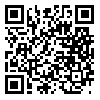Volume 24, Issue 2 (8-2025)
TB 2025, 24(2): 31-44 |
Back to browse issues page
Download citation:
BibTeX | RIS | EndNote | Medlars | ProCite | Reference Manager | RefWorks
Send citation to:



BibTeX | RIS | EndNote | Medlars | ProCite | Reference Manager | RefWorks
Send citation to:
Samimi Z, Davoudi T, Bahadorikhosroshahi J, Qadri E. Investigating the Effectiveness of Cognitive Behavioral Training on Test Anxiety and Social Media Addiction among Students. TB 2025; 24 (2) :31-44
URL: http://tbj.ssu.ac.ir/article-1-3754-en.html
URL: http://tbj.ssu.ac.ir/article-1-3754-en.html
International University of Chabahar , z.samimi@iuc.ac.ir
Abstract: (630 Views)
Introduction: Test anxiety and social media addiction are among the major psychological factors that negatively affect students’ academic performance. Accordingly, the present study aimed to investigate the effectiveness of cognitive-behavioral training on test anxiety and social media addiction among high school students.
Methods: This quasi-experimental study employed a pretest-posttest control group design. The statistical population included all female students in junior high school in Chabahar during the 2024–2025 academic year. A total of 30 participants were selected using purposive and then random sampling methods and were randomly assigned to an experimental group (n=15) and a control group (n=15). Following the pretest, the experimental group received cognitive-behavioral training over eight 60-minute sessions (two sessions per week). Data collection instruments included the Spielberger Test Anxiety Inventory (1980) and the Social Media Addiction Questionnaire developed by Khaje Ahmadi et al. (2017). Data were analyzed using analysis of covariance (ANCOVA), and independent and paired t-tests in SPSS version 27.
Results: The results showed that in the post-test stage, the subjects in the experimental group had less test anxiety (worry and emotionality) and less addiction to social media compared to the control group (p<0/001).
Conclusion: According to the findings, cognitive-behavioral training had a positive impact on reducing test anxiety and social media addiction among students. This approach can be considered an effective intervention for improving academic-related psychological challenges in adolescents.
Methods: This quasi-experimental study employed a pretest-posttest control group design. The statistical population included all female students in junior high school in Chabahar during the 2024–2025 academic year. A total of 30 participants were selected using purposive and then random sampling methods and were randomly assigned to an experimental group (n=15) and a control group (n=15). Following the pretest, the experimental group received cognitive-behavioral training over eight 60-minute sessions (two sessions per week). Data collection instruments included the Spielberger Test Anxiety Inventory (1980) and the Social Media Addiction Questionnaire developed by Khaje Ahmadi et al. (2017). Data were analyzed using analysis of covariance (ANCOVA), and independent and paired t-tests in SPSS version 27.
Results: The results showed that in the post-test stage, the subjects in the experimental group had less test anxiety (worry and emotionality) and less addiction to social media compared to the control group (p<0/001).
Conclusion: According to the findings, cognitive-behavioral training had a positive impact on reducing test anxiety and social media addiction among students. This approach can be considered an effective intervention for improving academic-related psychological challenges in adolescents.
Type of Study: Research |
Subject:
Psychology
Received: 2025/03/30 | Accepted: 2025/06/7 | Published: 2025/09/11
Received: 2025/03/30 | Accepted: 2025/06/7 | Published: 2025/09/11
Send email to the article author
| Rights and permissions | |
 |
This work is licensed under a Creative Commons Attribution-NonCommercial 4.0 International License. |







